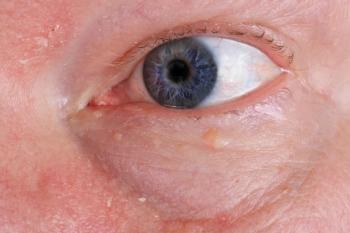
iSTAR Medical announces positive 5-year data from its STAR-GLOBAL trial for supraciliary MIGS device
STAR-GLOBAL is an extension trial of the initial EU clinical trials investigating the long term safety and efficacy of MINIject in patients with up to 5 years of follow up.
Medtech company iSTAR Medical has announced positive 5-year data from its STAR-GLOBAL trial for the supraciliary minimally invasive glaucoma surgery (MIGS) device MINIject®.1 STAR-GLOBAL is an extension trial of the initial EU clinical trials investigating the long-term safety and efficacy of MINIject in patients with up to 5 years of follow-up, according to a news release.
“These very positive 5-year follow-up results provide further validation of MINIject as a safe, standalone procedure and an effective longer-term treatment option for glaucoma patients,” said Karsten Klabe, MD, chief surgeon at Breyer, Kaymak & Klabe Augenchirurgie, Düsseldorf, Germany, and a key investigator in the STAR trials, in the release. “This gives us further assurance that MINIject can continue to benefit to patients even half a decade post-surgery.”
Patients implanted with the MINIject were invited to enroll in STAR-GLOBAL upon completion of 2 years in the iSTAR Medical clinical trial, where follow-up with continue from 2 to 5 years. Data in the STAR-GLOBAL trial were obtained from 47 patients who completed the 5 years of follow-up from the STAR I, II, and III trials (83.9% of the 56 patients enrolled). The efficacy results indicated a sustained and significant 38% reduction of intraocular pressure (IOP) through 5 years. A majority (83%) of patients achieved a >20% reduction in IOP from baseline, with 80% having IOP of 18 or less at 5 years, and 32% of patients remaining medication free. A favorable safety profile for MINIject including corneal health was also confirmed at the 5-year follow up, with no serious adverse events related to the device or procedure in the STAR-GLOBAL follow up period.1
“[These] 5-year follow-up data [are] highly encouraging, demonstrating the ability of iSTAR Medical’s MINIject to achieve sustained and significant lowering of IOP over the long term,” said Andrew Tatham, MD, FRCOphth, consultant ophthalmologist at Princess Alexandra Eye Pavilion and University of Edinburgh, UK, and President of the UK and Ireland Glaucoma Society, in the release. “This is consistent with the excellent safety and efficacy profile MINIject has already demonstrated in previous STAR trials.”
MINIject is currently the only commercially available supraciliary MIGS implant and has been implanted in more than 5000 patients since its launch.1
“The strength and consistency of these 5-year results reinforces our belief that MINIject has the potential to become the surgical treatment of choice for glaucoma patients, offering a best-in-class solution for long-term glaucoma management,” Michel Vanbrabant, CEO of iSTAR Medical, said in the release. “iSTAR Medical remains committed to further validating this hypothesis in its future studies, positioning MINIject as the preferred surgical impact device among key opinion leaders, doctors, patients, and investors. With over 5000 patients now implanted, we continue to progress the development of MINIject to address a significant unmet need in key global markets.”
In other news
Additionally, iSTAR Medical noted in the release that it has ended its alliance with AbbVIE, which was announced in 2022. “iSTAR Medical continues to operate its business as usual as an independent company and remains well positioned to continue the development of MINIject in its ongoing US STAR-V trial with the aim of FDA submission in 2028 and the continued commercial roll-out in Europe and other global territories,” the company stated in the release.
Reference:
iSTAR Medical’s MINIject demonstrates significant sustained 5-year efficacy in treating glaucoma in STAR-GLOBAL trial. News release. Morning Star. April 24, 2025. Accessed April 29, 2025.
https://www.morningstar.com/news/globe-newswire/1001092047/istar-medicals-miniject-demonstrates-significant-sustained-5-year-efficacy-in-treating-glaucoma-in-star-global-trial
Newsletter
Want more insights like this? Subscribe to Optometry Times and get clinical pearls and practice tips delivered straight to your inbox.













































